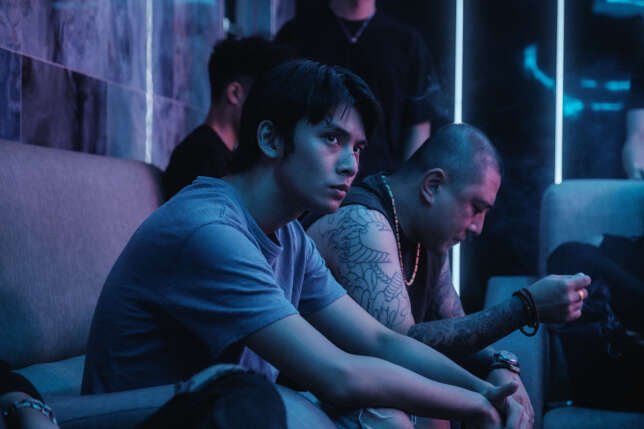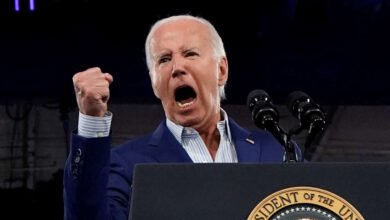Cannes Film Festival 2024. Keff, filmmaker: “It is important that Taiwanese youth have a voice”

The first scene of Locust takes place in a laundromat in Taipei, in June 2019. On a television screen, images of Hong Kong flash by, where the population demonstrates en masse against the takeover of the former British colony by Beijing. Two young people present in the room do not have the slightest intention: their eyes glued to their cell phones, they are ecstatic about the sale of a new cake.
From the outset, Keff, a 33-year-old Taiwanese-American director, sets the tone. In his first feature film, presented at Critics’ Week, the former DJ intends to question the attitude of Taiwanese youth towards threats that China poses to the island – and his apparent indifference to the repression that fell on Hong Kong.
For this, he chose the prism of the gangster film. His hero, Zhong-Han (Liu Wei Chen), is a young man from the countryside who leads a double life in the Taiwanese capital: during the day, he works in the restaurant run by his adoptive parents; At night, he plays tough for a gang of teenagers who extort local traders. His feeling of being in an impasse will little by little fill the film with a muted despair, highlighted by the neon lights of Taipei nights.
Visiting Cannes to promote Locust, Keff answered questions from International mail.
INTERNATIONAL COURIER You were born in Singapore to Taiwanese parents. You grew up between Hong Kong, Taipei and the United States. Why did you want to dedicate your first feature film to Taiwan?
KEFF My parents were both born and raised in Taiwan. We lived on the island for a long time, and I was raised with very Taiwanese values. As an adult, I felt the pressing need to reconnect with my Asian identity. I was living in New York then, like an American, but well before Covid, when Donald Trump became president (in 2016), people’s outlook began to change in the streets. I had the feeling of no longer being accepted, only tolerated.
I wanted to settle in Taiwan all the more because my professional activity has an impact on the place where I practice it. By making a film, I bring in money, I employ people, I can give back a little of what is given to me. And I wanted to return it to Taiwan.
That said, my goal in returning to the island was first to learn how to be Taiwanese again, by opening my eyes, my ears and my heart wide. And it was during this process, two years after my return, that I said to myself that I perhaps had the material for a film. If I’m telling a story on behalf of the people of Taiwan, I want to do it as authentically, accurately and honestly as possible.



